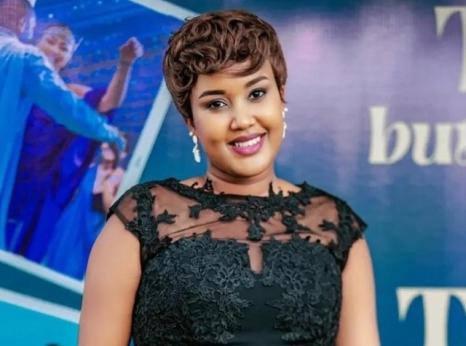Burundi: Journalist’s Conviction Upheld On Appeal

Floriane Irangabiye has been living in Rwanda for more than a decade. Before the 2015 crisis, she used to make regular trips between the capital, Kigali, where she resides, and Bujumbura, Burundi, where her family lives.
When former President Pierre Nkurunziza decided to run for a third term in office in April 2015, many Burundians took to the streets to express their frustration against the decision that they believed violated the 2005 Burundian Constitution which limited presidential terms to two terms of five years. Her trip in August 2022 was the first time she visited her family in Bujumbura since 2015.
During her trial at the end of 2022, the prosecution presented comments made during an August 2022 show on Radio Igicaniro, a Burundian online media outlet, in which Floriane Irangabiye and her guests criticized the government of Burundi. In an audio recording of the show retrieved by the prosecutor, she purportedly said: “the population is resigned to the evils of the leaders of Burundi, citizens do not express themselves for fear of being killed, we call on Burundians to brave the fear.” The prosecution also presented as evidence photos of her posing with President Paul Kagame of Rwanda and former President Pierre Buyoya at public events. She was also accused of participating in meetings held by Burundian youths in exile in Rwanda. She was convicted on 2 January 2023.
Burundi’s civil society and media organizations were among the first targets of the government repression in 2015. The government suspended or closed most independent human rights organizations and media outlets and drove them into exile. Despite promises by President Ndayishimiye to normalize relations with the media in 2021, the Burundian government continues to view the press and human rights work with suspicion, and severe restrictions on human rights, including the right to freedom of expression, remain in place.
Most independent human rights organizations have been unable to resume their activities in Burundi, especially as the Burundian authorities have issued arrest warrants for many of their leading activists, who live in exile. On 14 February, five human rights defenders, Sonia Ndikumasabo, president, and Marie Emerusabe, general coordinator, of Association of Women Lawyers in Burundi (Association des femmes juristes du Burundi, AFJB), Audace Havyarimana, legal representative, Sylvana Inamahoro, executive director, Prosper Runyange, land project coordinator, of Association for Peace and Promotion of Human Rights in Burundi (Association pour la paix et la promotion des droits de l’Homme, APDH) were arrested and accused of rebellion and of undermining internal state security and the functioning of public finances. The charges appeared to relate to their relationship with an international organization abroad and the funding they have received from this organization. They were released on 28 April. Twelve human rights defenders and journalists were among a group of 34 people sentenced to life in prison in absentia in June 2020 on accusations of involvement in an attempted coup in May 2015; the Supreme Court judgment was not made public until February 2021.
Arrest or detention as punishment for the peaceful exercise of human rights, including the right to freedom of expression, is arbitrary and violates the African Charter on Human and Peoples’ Rights and the International Covenant on Civil and Political Rights both of which Burundi has ratified. The UN Working Group on Arbitrary Detention has determined that those detained solely for the peaceful exercise of their human rights must be immediately released.